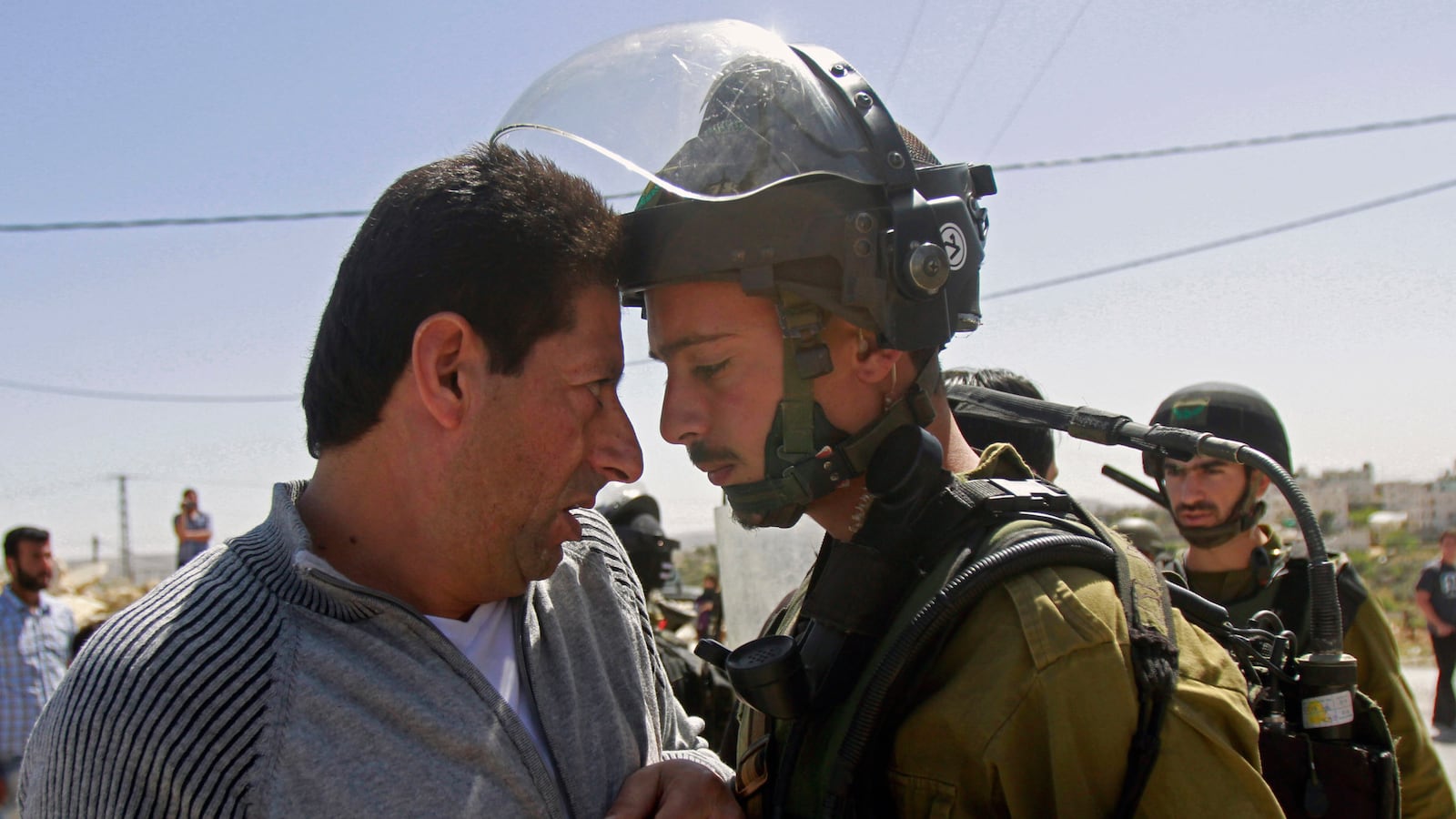Every now and then an American polling institution will ask Americans to choose who they “sympathize with” more: Israelis or Palestinians? Gallup Polls conducted such a survey in February; Pew Research followed in mid-March.
In both cases, as in every poll of this type that I’ve ever seen, Israel emerges the clear winner: Gallup finds 64 percent of American adults sympathize more with Israelis, vs. 12 percent who sympathize more with Palestinians; Pew’s numbers break down as 49 percent vs. 12 percent.

The numbers get a little odd as one looks at them more closely, though: Gallup’s only options were “Israelis,” “Palestinians,” or “no opinion”—and yet 16 percent of respondents went out of their way to volunteer either “both” or “neither” (seven percent chose “no opinion”).
As for Pew, in addition to “Israel” and “Palestinians,” respondents were also offered “neither,” “both,” and “don’t know”—and 37 percent of respondents chose these latter three categories. Both polls show drops in support for Israel as respondents get younger; Pew finds that among 18-29 year olds, 36 percent have more sympathy for Israel and 19 percent for Palestinians, but 11 percent favor both or neither, while 34 percent don’t know.
So here’s my question: What on earth do these numbers actually mean?
As someone with a background in political science and a vested interest in the answer, as well as a well-formulated set of my own opinions, I suspect these numbers mostly mean that “Israel” is a more familiar word to most Americans than the word “Palestinian.”
I think they also mean that the American conversation surrounding the conflict results in many Americans hearing “Palestinian” as a synonym for “terrorist” (indeed, I have a powerful suspicion that many post-9/11 Americans hear “any kind of Arab or Muslim whatsoever” as a synonym for “terrorist”). I think Americans are more likely to have met an Israeli than a Palestinian, and that American Christians are likely to know more about Judaism than about Islam. I also think that Americans are more likely to have seen pictures of weeping Israelis than of weeping Palestinians—and that those Israelis look a lot more like our neighbors, while the Palestinians may look very much Other.
Of course, I don’t know any of this for sure. This is my fairly well-educated gut talking, but statistics are supposed to remove at least some of that squishiness from the social sciences.
What I mostly think is that a lot of Americans don’t actually know very much about Israel or Palestine, but more young people are willing to actually admit it. Can we commission a poll to confirm or disprove that thesis?
Let’s call up a representative sample of the American public and ask the following four questions, and in each case, provide two reasonable answers, one garbage answer (to weed out at least some of the folks who feel obligated to say something even when they have no clue), and finally “I don’t know."
Then, when we’ve determined who actually knows something, let’s ask those folks one more question. Rather than present them with a binary that assumes only one sympathetic party, let’s present a series of possible solutions to the conflict, and find out which they think makes the most sense. Such a two-stage poll would not only provide us with a snapshot of informed opinion, it would also give us insight into what Gallup’s and Pew’s numbers seem to reflect: Increasing numbers of Americans either can’t, or don’t want to, pick a side.
I can’t say I see this as a bad thing. I remember sitting in the apartment I shared with a friend on Rehov Smuts in Tel Aviv in 1989, talking with a different friend about the intifada that was then still raging. Steve was on his way back to the U.S. from Yemen, having just completed a stint with the Peace Corps; a gentle soul with a surfer-dude demeanor, he was struggling mightily with his general sense that Israelis had a right to peace and security, and what felt to him like an opposing sense that Palestinians did, too.
I remember blurting out “I just don’t think that when you say you’re pro-Israel, it has to mean you’re anti-Palestinian. I think I’m pro-both.” A smile spread across my friend’s face. “Pro-pro! I like that!”
And that’s honestly the moment in which I began to advocate for the notion of being “pro-pro,” because being for one people really does not have to mean being against the other. Eventually, I came to understand that in order to be truly pro-Israel, in fact, I’d better be pro-Palestinian as well. Because there’s no separating us, no getting around the other, and when one stumbles, the other falls.
I don’t know if Gallup’s and Pew’s numbers reflect a growing similar understanding among the American public, or if those numbers reflect ignorance, or if they reflect nothing much at all.
But I do know that “who do you like more?” isn’t a useful question. “How do you think we can solve this?” is.




